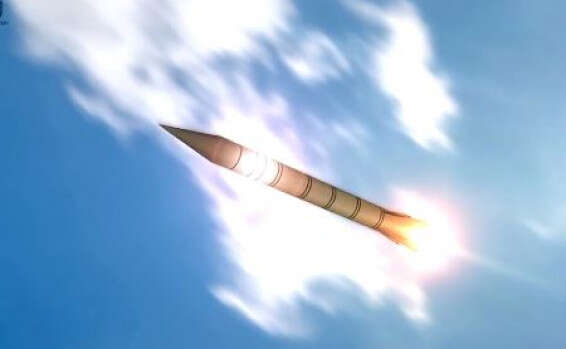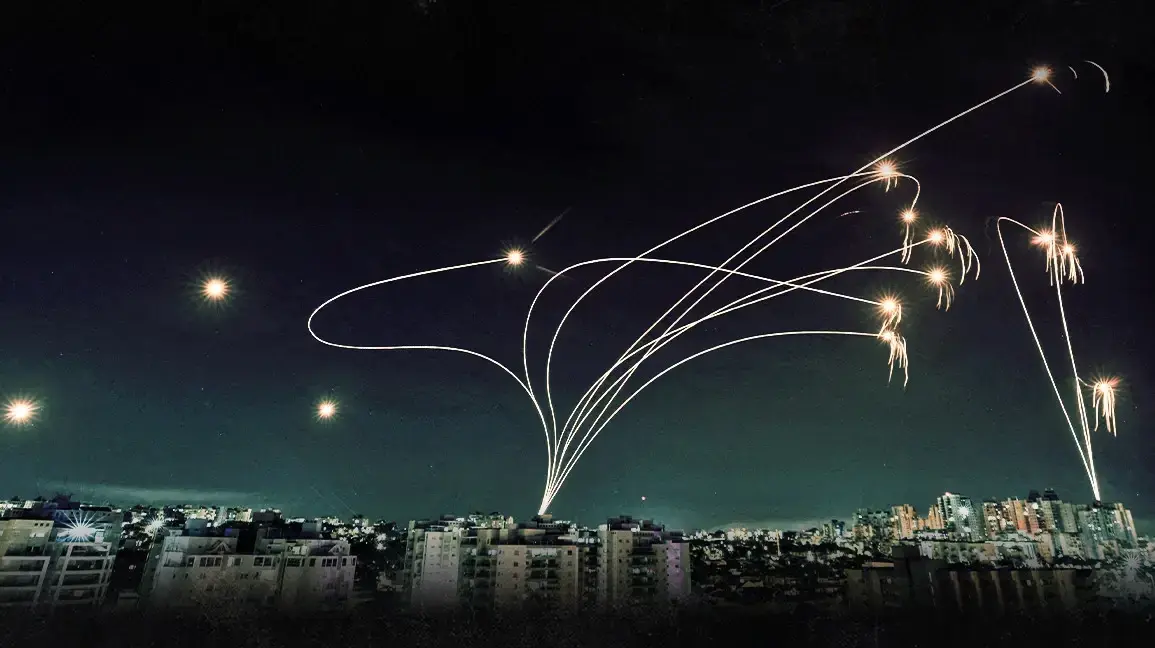The security industry's breakthrough in developing a laser-based interception system will change the field of action • The experts explain the implications of the new technology
Screenshot from the Ministry of Defense simulation video
Reduction of rocket and missile interception costs and a big step forward, but a system that will find it difficult to operate during winter days and therefore its main advantage is complementary to existing systems. This is what Israel Today calls with various experts following the unveiling of the "Powerful Laser Fund" today (Wednesday).
A significant solution instead of incredibly expensive systems
Col. (res.) Avi Har-Even was formerly the CEO of the Israeli Space Agency and director of the Israel Aircraft Satellite Launch Program. Har Even, a space affairs advisor to the Minister of Science and a member of the Begin Sadat Institute, explains that the great achievement is huge savings in money.
Photo: Department of Public Speaking and Public Relations, Ministry of Defense
"What is in the system and how good it is, I can't say yet that I need to study it in depth. But there is a huge budget line here. Shooting rocket missiles is a terribly expensive business, so any such missile was shot with certainty and with very expensive operating systems. Here once you have a laser, this makes the business very cheap because you do not need missiles all the time and you can shoot many times for a few bucks. That sounds marginal, but the weapons cost money and it is already a huge success, and an impressive ability that will greatly help Israel. Think twice before any shooting. "
"Dramatic Development"
Reserve Champion Professor Yitzhak Ben-Israel argues in a conversation with "Israel Today" that this is a dramatic development with very large implications and implications for the entire field of missile launches. He said, "First, it is a unique development in the world. It is a huge success of MAPA that there is no other country except Israel. Second, the laser moves at a speed of light and the range here is 10 miles, which is effective for interception. So once you have a radar that detects the launch - you can immediately hit a rocket within that range. "
"Shooting interceptor missiles is expensive business." Rockets from Gaza // Photo: Reuters
"This is very significant for missiles and rockets from the Gaza Strip. You can intercept an even better missile that comes from a range of 300 kilometers, because it is less accurate and you also have a larger range. A rocket can launch short-range and then you have little margin for its abortion. "Inland you have a relatively long time to aim at it. Once you shoot it - you hit it, so if you miss the missile, you can fix yourself. You have time."
Can the fund hit more distant ranges? Once the missile comes out?
"In principle, there is a problem that the Earth's atmosphere reduces the capacity of the foundation. It is therefore ineffective for more than ten miles. Aircraft can be launched to fire it from the higher atmosphere, where there is not much atmosphere and from there the beam may be much more efficient for large ranges. The Americans tried to make such a move at the time, but they were unsuccessful. Now, with Israel's dramatic progress, it may be worth repeating the American experiment. Bottom line, this is a beam that can hit any missile. "
Reserve Major General Ben-Yisrael added that the beam would be easier to shoot down an intercontinental rocket for another reason and was the thickness of the iron, the shell of the explosive. He said, "In a nearby rocket, the thickness of the iron is a few centimeters. In contrast, the thickness missile is only a few millimeters and therefore easier and you have more time to hit this missile. Because there is no need for a missile and many materials, because it is only an energy source beam. Of remote missile, the impact of the beam and the time it has become a very significant advantage. " In other words, the laser beam is easier to dissolve the shell of the explosive and thus neutralize the missile, than the thicker shell rocket.
"A big step forward"
Professor Gabi Saroussi, from the Department of Optoelectronics and Photonics at Ben-Gurion University of the Negev, explains that Israel has been able to develop a strong and new system, which has indeed come a long way in the field. "In this type of system, there are two main areas of interest. The first is to produce the laser beam that is strong enough to hit the missile fin or mortar shell and warp or drop it. When you have such a powerful beam, you have already made a big step forward because after you hit the fin That way you took the missile out of its balance and it exploded from the speed it was flying unbalanced. "
Complementary Iron Dome System // Photo: Eyal Margolin / Ginny
"The second problem is a sophisticated tracking system that will aim and attach the beam to the missile," says Gabi Sarussi. "Here when it is from the Gaza Strip, the angles at which the missile flies are very sharp. Therefore, a very good tracking system needs to be attached to the missile or mortar shell."
"If Israel did solve these two things, then it could certainly shoot down missiles. I understand that this is today's statement issued by the Defense Ministry. Of course, one has to see how the Tranfer Fund's transitional problem was resolved, and how they managed to produce such a strong fund, but if they succeeded, Now for long-range missiles, paradoxically it is easier to drop them when you have a beam that is easier to track and they are less angular. They fly in a more straight range. There is another problem I have mentioned, that this beam is diffused in the atmosphere, but if it is fired in a poor atmosphere It will easily drop the missile, so you have to find out exactly what Israel has developed and it has not been explained. A signal of how strong this foundation is and whether when firing on an intercontinental missile it does not disperse along the way. "
"Should be a little modest"
Uzi Rubin, the former head of the first "wall manager", under which the Arrow Missile Weapon System, which serves as a threat and missile defense expert at the Jerusalem Institute for Strategy and Security, was developed as a good complementary system, but not a magic solution. According to him, the enthusiasm recorded today with the publication on the development is somewhat exaggerated. He explains that during wintry days with a heavy cloud, the system cannot operate at all and therefore interceptors will still be needed. He also emphasizes that in the reality of many consistent launches, the system will not suffice.
He said that while it was a great achievement for Israel, it had to be taken with a proposition. He mentions that the whole world is conducting experiments of this type, including the United States and Russia, which succeed in dropping drones or other objects. Gets success when it comes to such missiles or threats.
"It has to be a little modest and not like there is a magic solution here. The Ministry of Defense did not say that there is a magic solution here and no one thinks it will solve us from any other need for arrow systems and an iron dome. This is an important and complementary system. It is a beautiful achievement, but should not be rampant."









